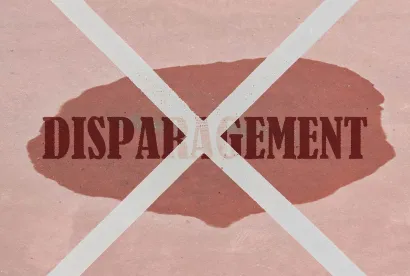The National Labor Relations Board (the NLRB or the Board) issued a decision earlier this week that purports to ban confidentiality and non-disparagement provisions from most employee severance agreements.
In McLaren Macomb, the Board scrutinized severance agreements an employer gave to 11 employees who had recently been laid off. The confidentiality provision stated that the terms of the severance agreement were confidential and must not be disclosed to anyone with few exceptions (e.g., the employees’ spouses). The non-disparagement provision barred the employees from making statements to anyone that could disparage or harm the image of the employer or its officers, directors, employees, etc. These provisions are obviously common in severance agreements.
Among other things, the Board determined that both provisions unlawfully prevented the former employees from speaking out about working conditions and compensation (including the severance) offered by the employer and assisting with NLRB and other government investigations. Historically, the NLRB has gone back and forth on whether such provisions are lawful. However, the position taken this week is the NLRB’s most aggressive position to date. Specifically, the Board determined that the mere inclusion of such provisions in a severance agreement is unlawful because they have a deterrent and chilling effect on worker’s rights, even if the employee does not sign the agreement or the employer does not enforce the provisions against an employee who breaches confidentiality or disparages the company after signing.
It is important to note that this decision has some limitations:
- First, it does not apply to “supervisors” (as defined by the NLRA) or to independent contractors. Who is a “supervisor” under the NLRA involves several factors, including whether the employee has the authority to hire, fire, discipline, or direct the work of another employee. Therefore, it is clear that executives and upper-level management are not covered by this ruling, and, depending on the circumstances, middle and even lower level managers may not be covered either.
- Second, some have questioned whether a smartly worded disclaimer may permit employers to include limited confidentiality and limited non-disparagement provisions in severance agreements given to rank-and-file employees. For instance, in the past, employers often included a broad statement that the severance agreement is not intended to and in fact does not infringe upon any rights the employee may have under the NLRA. Unfortunately, the Board did not specifically address this issue, but, given the aggressive position taken in the Board’s decision this week, there is definitely some risk of liability even with such disclaimers. That determination should be made based on the employer’s risk-tolerance, along with the circumstances of the individual severance agreement, and is best determined by speaking with legal counsel.
The NLRB General Counsel is expected to release additional guidance on this issue in the coming months. Until that happens, employers should seriously consider this decision when drafting severance agreements.




 />i
/>i

